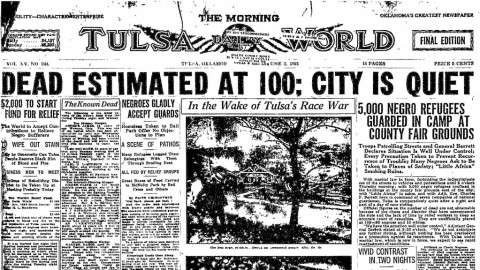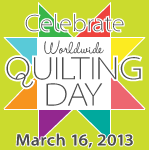
I have read the first two books by Marlene Banks,
Ruth's Redemption and
Son of a Preacherman, and have looked forward to reading this third book,
Greenwood and Archer.
In late May and early June, 1921, a race riot erupted in the Greenwood District of Tulsa, Oklahoma. An estimated three hundred men, women, and children lost their lives, and churches, schools, stores, movie theaters, a hospital, and libraries were among the six hundred businesses destroyed, besides over a thousand homes. These events were depicted in the author's Son of a Preacherman.
The events in Greenwood and Archer take place after Son of a Preacherman, continuing the stories of members of the Matthias and Freeman families, as well as other Tulsa characters.
--A Note to the Reader, author Marlene Banks

Destruction on every side, Billy Ray Matthias joins in rebuilding and encouragement of the people of Greenwood District together, following the riot and burning of the community. He is engaged to the daughter of rancher Earl Freeman. Benny and her brothers, Ethan and Cord, are very close. The two families join for Sunday dinners. Billy Ray's father is Reverend Roman Matthias.
Greenwood and Archer is told through the story of these two families and others in the community as they strive to rebuild lives.

The upheavals bring others to add to the peril they are already overcoming. Benny, a school teacher, is visited by her former fiancé who has brought havoc to her life in the past. He is a musician and brings his band with him. One member and Billy Ray know each other. A woman is sent from NAACP, sharing the law office of Ethan, Benny's brother, and a struggle. A Chicago gangster and his mob move in to set up his plan of taking over and making a name for himself. All of them are interwoven into the life of each other through circumstances they are not fully aware of. Lawmen join together to combat what before had separated them. In looking for solutions when they are needing help, they pray and do not push God aside. Throughout it shows what God can do through one person as they are strengthened and gain direction by coming to Him. They do not give up at adversity as they help and support each other.
3 You keep him in perfect peace
whose mind is stayed on you,
because he trusts in you.
4 Trust in the Lord forever,
for the Lord God is an everlasting rock.

Marlene Banks lives in Philadelphia, Pennsylvania. Along with being a prolific writer, she has an Associate of Theology
Degree from Rhema Bible Institute in Keysville, Virginia, and is currently studying to initiate a Christian counseling ministry. Marlene has worked thirty plus years in nursing and more than eight years in business. She considers her writing a means of evangelizing and relating Christian principles through fiction.
 Ruth's Redemption
Ruth's Redemption: In 1820, Bodine Peace is given his freedom and a parcel of land following the Will instructions upon the death of his master.
Other freed slaves live on Bo's land. As he can, he buys slaves to set
them free after one year of servitude when they receive their freedom
papers.
http://lanehillhouse.blogspot.com/2012/07/ruths-redemption-by-marlene-banks-c2012.html
 Son of a Preacherman
Son of a Preacherman: "A
historical romance novel set in the 1920s in Tulsa, Oklahoma, depicting
the segregated life of African Americans in Northern Tulsa and the
tensions leading up to the Tulsa Race Riots."
http://lanehillhouse.blogspot.com/2012/12/son-of-preacherman-by-marlene-banks-2012.html
Greenwood and Archer: After the Riot
continues the stories of Billy Ray Matthias and Benny Freeman and the
residents of the Greenwood District after the historical Tulsa Race
Riots of 1921. Though a sequel to
Son of a Preacherman,
Greenwood and
Archer can be read as a stand alone book.
***Thank you to author Marlene Banks for providing me with a copy of
Greenwood and Archer: After the Riot to read and review in my own words.***
Prologue and Chapter One,
Greenwood and Archer
PROLOGUE
GREENWOOD DISTRICT
TULSA, OKLAHOMA
JUNE 3, 1921
The scent of smoke lingered in the air even two days after the
horrendous riot. Dazed, many people still wandered around, trying to
locate loved ones. It was a time of disbelief that such atrocities
happened in their community. Being black in Tulsa had never meant
first-class citizenship, but until now it never caused such violent
victimization. Murder and mayhem had swept through the successful Negro
community of Greenwood District with a deadly and destructive fury.
“Why
we gotta wear badges?” a black man protested.
“Cause that’s the new
law,” the irritated police officer snapped.
“It ain’t right. After all
we been through you is tellin’ us we gotta identify who we is? I always
been a free, law-abiding citizen, but when they come in our neighborhood
terrorizing us and now tell us we under martial law, it ain’t right!”
“Go on and have your employer get you a badge or stay off the streets.
That’s the new rule. Now go ahead, boy, before I throw you in jail!” “I
ain’t no boy, I’m a man just like you,” he grumbled walking away.
~ ~ ~ ~
AFRICAN METHODIST EPISCOPAL CHURCH
New laws were being put into effect in Tulsa after the riot, not for
protecting the victims but to subdue any thought of retaliation against
white citizens.
“Curfew! What gives them the right to issue a curfew
only on Negroes?” Pastor Scoggins demanded from in front of the pulpit.
“It’s not right!” Reverend Matthias agreed.
“Is it just in the city, or
does the county have a curfew too?” Reverend Metcalf asked, troubled.
“They told me my taxis have to be off the street by eight at night,” L.
D. Johnson said. “That shorts my money to make a decent living. I make a
lot of my big fares after dark, and they know it.”
“They don’t care
about you making a living. They want us to all go broke,” H. T. Wilson
declared.
“What is the NAACP doing about this?” Reverend Matthias asked,
turning to Ethan Freeman.
“It’s just in the township limits so far, but I think they’ll soon
change it to include the counties,” Ethan said.
“This is the last
straw,” Reverend R. A. Whitaker declared as he stood up. “I’m sick of
them harassing us when we’re the injured party.” The preacher stepped
out into the aisle. “They burned down Mt. Zion Baptist Church because we
dared to prepare to protect ourselves and fight back. They murdered
innocent human beings and destroyed blocks of valuable property. Then
they try to blame us for the riot. I’m sick of their twisting the
facts.”
“Enough is enough,” Mr. French said from the rear of the church. The
house was full for this covert meeting. The law was cracking down on
every move made in Greenwood District. Police patrolled the area,
stopping and questioning its citizens at random. What should have been
police protection for the residents of Greenwood District became police
persecution.
“I can’t find my sister,” Georgia Logan said. “They took
her out the house, I’m told, and then burned the house down. I can’t
find where they took her. She’s sick and in a wheelchair.”
“We’ll help
search the hospital and the Red Cross with you,” an older woman
volunteered.
“I already did and she’s not there.” Tears pooled in
Georgia’s eyes.
“Maybe someone took her in,” Mrs. French suggested.
“I
need help feeding the survivors and finding them shelter,” Reverend
Metcalf announced.
You can use this church if you need to, Reverend,”
Pastor Scoggins offered.
Clara Hydecker started crying. “They murdered my poor Sam for nothing!
What are we going to do? My husband is dead, we have no home and no
food, and everything we owned was burned with our house. I have no money
and I have four children to feed!”
A young man called out, “Yeah, what
are we going to do? The law isn’t on our side. What are we going to do?”
Billy Ray Matthias stood up. “We’re going to find food and feed as many
people as we can. Then we’ll set up temporary shelter as best we can,
tents if we have to for the time being. Then we organize a rebuilding
plan. What we don’t do is give up. We don’t accept defeat, because that
is exactly what they want.”
“Yeah, we can rebuild this neighborhood even
better than before if we try,” Vic Brown shouted.
“Easy for you to say
since your house ain’t burned to the ground,” Manny Griswold muttered.
Billy Ray walked to the front of the sanctuary his imposing figure
matched only by what he said. “The people of Greenwood District cannot
give up. We have to get to work helping each other and rebuilding what
was destroyed, but before we worry about any of that . . . we need to
pray.”
CHAPTER ONE
EAGLES POINTE COUNTY, OKLAHOMA
SEPTEMBER 1922
The race riot of May 31 and June 1, 1921, had turned a once thriving
entrepreneurial community into a bloody battlefield. Hatred and terror
reigned throughout the evening and into the wee hours of the night. To
the beleaguered residents of Greenwood District, morning’s dawn unveiled
the full horror of lost lives and property destruction.
Thirteen months after the racially motivated riot, Greenwood District
still evidenced the assault on its citizens and destruction to its
infrastructure. The rebuilding process was under way but would never
fully heal the scars of that fateful evening. Gradual development was
being made to restore demolished businesses and homes. It was not an
easy task, but one that would be completed. The spirit of Greenwood
would not tolerate eradication by those consumed with violent intent.
Prayers were continually being offered for the people and the
neighborhood from Christ-loving citizens of Tulsa, black and white, and
across the country as well. Greenwood District would not remain a
hollowed-out shell of a community but be raised from the dead by the
hand and will of God.
The county beyond the city limits had not suffered
much of the murderous invasions and fiery attacks. Ranchers in Eagles Pointe were busier than ever employing people from Greenwood and
providing for the many displaced city dwellers. The most disheartening
factor was that after all the wreckage, things had not improved and
Tulsa’s caste system was still firmly in place.
Amos Grapnel’s beady
eyes darted around Cordell Freeman’s ranch as he was leaning against the
large weathered barn. Grapnel’s short stature and chubby frame sported a
protruding belly and balding head. He sporadically rocked back on his
heels to show off the fancy boots he’d recently purchased in Texas. Tom
Eberly, a frail gray-haired man who accompanied him, stood slightly bent
over leaning on his walking stick as he watched Cord lift a bale of
hay. Grapnel pulled out a pipe. “You ought to give it some real thought,
boy,” he said reaching for the tobacco pouch in his back pocket.
“Told you, I’m not interested in sellin’,” Cord said, hauling the bale toward the barn.
“Why not? Offering you more than twice what you paid. Can’t beat that for profit.”
“Don’t care about profit. I’m doing good right here and I don’t wanna sell my place, Mr. Grapnel.”
“Don’t be so quick to turn up your nose at a lot of money, boy. You
could get another place if you want with what you’ll make, or . . . you
could sit on your bank account and move back home with your folks.”
Grapnel grinned slyly.
“I done told you I’m not interested,” was Cord’s irritated response.
“Plain pigheaded,” Grapnel grumbled, “just like your father.”
“We might as well go,” Eberly said, shifting his weight impatiently.
“Why are you so attached to this place anyway?” Grapnel continued. “It’s
not your family’s land. You’re all alone out here except for those
hired workers you got from town. Don’t have no family around here to
keep you company. I’d think you’d be glad to be rid of this place seeing
you lived here with that no-good wife that hung herself.”
Cord’s head jerked up. Lightning fast he dropped the bail and charged.
Before Grapnel could react Cord had him by throat. “I’ll kill you for
talkin’ that way about my wife,” he shouted, clamping tightly on the
man’s throat. Grapnel’s eyes bugged as he desperately groped at Cord’s
hand to get free.
Eberly straightened up as best he could hollering,
“Let ’em go! You’ll choke the life outta him!” He whacked Cord across
the back with his cane twice. “Turn him loose!”
The blows didn’t faze
Cord. He was crazed with fury. “You come on my land talkin’ against my
wife, you lowdown snake! I’ll kill you, so help me, I’ll kill you!”
Grapnel’s color was starting to drain. Eberly looked over at Grapnel’s
car trying to gauge how fast he could make it to the vehicle and
retrieve his friend’s pistol. The sound of fast-moving hooves drew his
attention and he turned all the way around.
“Cord, let him go,” a
frantic female screamed from on top of an impressive palomino. “Let him
go, Cord!”
A large muscular man ahead of her had already dismounted from
a huge brown stallion and was hurrying toward the choking man. Eberly
stumbled backward seeing the powerfully built black male rushing toward
them. “Stay out of this,” Cord yelled, trying to maintain his grip when
the man grabbed his hands, prying them loose from Grapnel’s neck.
“Cord,
please let him go,” the woman pleaded, bolting toward him after she
jumped down from her horse.
“They’ll kill you for sure if you do this,”
the man warned looking Cord in the eyes. “Is that what you want . . . to
die for killing this devil?”
Cord stopped applying pressure but he still had hold of Grapnel. “He
should die - him and all his rotten kind. They killed those people in
town and the law did nothin’ about it! Not one drop of justice to those
murdering dogs. He was part of it, you said so yourself. He tried to
kill you, didn’t he? So why shouldn’t he die?”
“You’re right, he was part of it and the law did nothing to him or the
rest of them but believe me the Lord will do something. He’ll have His
justice for all the evil done in this world.”
“Ain’t waitin’ on the Lord. This polecat needs dealing with now. He
belittled my wife and I won’t put up with him or nobody else talkin’
like that about her.”
“Make him turn Amos loose,” Eberly demanded raising his cane in the air again. “He gotta breathe.”
Cord’s sister, Benny, reached her brother and gently put her hand on his
shoulder. “Cord, please, please don’t do this. Let him go. Billy Ray’s
right, Jesus will have justice for all the wrongs done to our people,
but not this way. They will answer to God, and if we wait it out,
justice will be done. There’s been too much killing already; please, no
more.”
“I oughta snap his nasty neck.”
“Don’t let this man goad you into tangling with the law, ’cause you’ll
lose. That’s all they need is for you to get arrested for killing him
then they’ll gladly see you in the electric chair. I couldn’t stand
losing my big brother and neither could Momma. Please, please let him
go.” Tears filled her eyes.
Cord released Grapnel, dumping him on the ground.
Grapnel gasped for air, loudly coughing and holding his throat. Eberly
limped over to his friend. Cord looked down at his foe with loathing. “I
should finish you off,” he threatened. “I don’t care nothin’ ’bout
dyin’ in no electric chair. I’d be with Savannah if I did.” He looked at
his sister. “But for your sake, just for you and Momma, I won’t.”
“Thank the Lord.” Benny sighed, laying her head on his shoulder. “We
love you, Cord, and we need you here with us.” She resented her
brother’s devotion to his deceased wife but had learned not to show it.
Billy Ray put his hand on Cord’s back. “You made the right decision, the wise one.”
“He ought to be jailed for attackin’ a white man,” Eberly insisted, pointing his stick at Cord.
“Shut up, old man. Take your no ’count friend and get off my land!”
“Won’t forget this, boy. You wait and see, the law’ll handle your crazy black hide.”
Billy Ray lifted the still coughing victim off the ground. Grapnel
couldn’t speak but his expression, a mix of fear and rage did. He jerked
away. Billy Ray knew his hateful nemesis would never let this matter
drop. Still, he tried to brush the dirt from Grapnel’s clothes as the
incensed man rejected his assistance. “I’m trying to help clean you off,” Billy Ray pointed out.
“Get your big black hands off me, boy,” Grapnel croaked snatching himself free, though barely able to stand. “I’d as soon see you dead than have you touch me, you big ape.” He
walked shakily toward his vehicle with Eberly limping beside him.
“Shoulda let me choke the life out him,” Cord grumbled squinting from the noonday sun.”
“Don't think I didn't want to, but I couldn’t,” Billy Ray said, watching the ornery pair depart. Memories of the harrowing riot and his almost fatal encounter with Amos Grapnel and Moose Kegel came vividly back to his mind. He immediately prayed,
Lord, heal my soul and fix my heart because if You don’t, what I do to that man won’t be pretty. Remove my hatred, Jesus.
“Why was he here?” Benny asked.
“Wants me to sell this place to Eberly.”
“What for? Why does Eberly want this ranch at his age and in his condition?”
“Same reason the rest of them wantin’ to buy up all of Greenwood, I reckon. Eberly said something about leavin’ an inheritance for his grandkids.”
“What did you tell him?” Billy Ray asked.
“That I wouldn’t sell.”
“I take it he got mad and said what?” Benny wanted to know.
“Opened his foul mouth against Savannah, that’s what.” Cord's jaw tightened.
Benny shot Billy Ray a telling look. “What does she have to do with you selling your ranch?”
“Nothing, he was being nasty is all.”
“You know he’s going to cause trouble over this,” Billy Ray predicted.
“I’m telling Ethan in case you need his help,” Benny said.
“I’ll tell him myself. He’s comin’ here later.” Cord walked over to the bale of hay he’d dropped. “What brought you two over?”
“Divine intervention I’d say.” Billy Ray chuckled.
“Momma's cooking steaks on the pit tomorrow. She wants you come by and eat with us.”
“Tell her thanks for askin’, but I can’t.”
“Why not? You love beef on the pit. You love Momma’s rhubarb apple pie, too.” Benny smiled.
“Sounds good, but I got a lot to do around here.”
“Stop making excuses and come over. You never accept our invites to visit. Why can’t you let bygones be bygones? Daddy’ll be so happy to see you.”
“Did he say that?” Cord dropped the bale inside the barn door and headed for another. Billy Ray fell in step behind him.
“Well, not in so many words but I know he misses you and ...”
“Let it rest, Benny. It's all right; I’m doing fine here on my own. I don’t hold no ill feelings toward Dad anymore, but what happened can’t be undone. Truth of the matter is I don’t think it was all my fault. I feel bad about what I did, don’t get me wrong. I should have never disrespected him that way no matter what he said, but he’s never owned up to his wrong in the matter so that’s it. Leave it alone.”
“You know how stubborn Daddy is.”
“Yeah, well so am I.”
“Daddy still loves you, Cord, and he wants you to be part of our family like always. He said so.”
“You can’t go back, Benny. That’s the hard thing about making bad mistakes. You’re stuck with the consequences.”
“God gave us the ability and right to repent for our mistakes. To turn away from our misdeeds and ask forgiveness and to forgive people who hurt us.”
“I already asked Dad and God to forgive me, and I forgave Dad so let it go at that. Things may never be like they used to be between us. You need to accept that,” Cord said firmly.
“But ...”
“Benny, your brother said let it go so you should respect that,” Billy Ray advised.
Benny sighed in frustration. “All right, I’ll leave it be.”
































